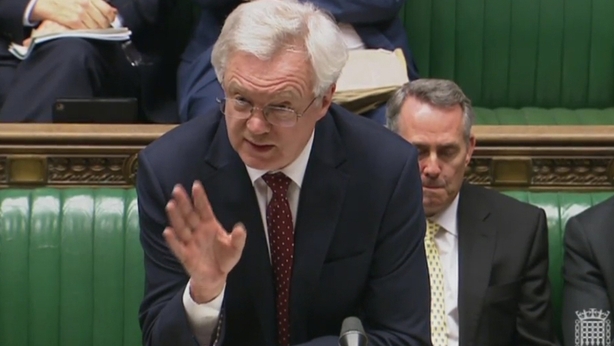The British government has won final approval from parliament for legislation giving Prime Minister Theresa May the power to trigger the country's exit from the European Union.
After MPs voted earlier to throw out changes to the bill made by the House of Lords in recent weeks, the upper house also agreed to pass the legislation unamended.
Mrs May now needs only to await royal assent of the European Union (Notification of Withdrawal) Bill before triggering Article 50.
However, Mrs May looks set to wait another fortnight before kicking off the two-year process of negotiating departure under Article 50 of the EU treaties, with formal notification expected to take place in the last week of March.
Mrs May's official spokesman played down suggestions that she had delayed notification due to Scottish First Minister Nicola Sturgeon's announcement that she plans to stage a second independence referendum in the run-up to the expected date of Brexit in spring 2019.
There was widespread speculation in Westminster that she could do so as early tomorrow, when she is scheduled to make a statement on Europe to the Commons.
But her spokesman told reporters the PM had always said she would notify the European Council of the UK's intention to leave by the end of March, adding: "I've said 'end' many times but it would seem I didn't put it in capital letters strongly enough."
Notification in the last week of March would not only avoid clashing with the general election taking place on Wednesday in the Netherlands, but would also delay the formal opening of negotiations until after a special summit in Rome on 25 March when the remaining 27 member states will celebrate the EU's 60th anniversary.
The Prime Minister's European counterparts had been prepared for her to make an announcement this week, with 6 April pencilled in as the date for a meeting of the 27 other EU leaders to respond to the situation - a gathering which will now be pushed back until later that month.
MPs voted against a proposal to unilaterally guarantee the rights of EU nationals living in the UK within three months, by 335 votes to 287, majority 48.
They then voted against an amendment designed to give Parliament a "meaningful" vote on the final deal, by 331 votes to 286, majority 45.
Later in the Lords, with Brexit Secretary David Davis watching from the bar of the House, a Liberal Democrat move to reinsert the amendment on the rights of EU nationals living in the UK was rejected by 274 votes to 135, Government majority 139.
Peers then voted 274 to 118, Government majority 156, against a move to insist on a "meaningful" vote on the final deal.
Earlier, Mr Davis told the House of Commons he was "disappointed" that the Lords had amended a bill which passed through the lower House unchanged.
The majority of voters, regardless of whether they backed Leave or Remain, now wanted Mrs May to "get on with the job in hand and to do so with no strings attached", he said.

Mr Davis told MPs he felt a "moral responsibility" towards four million EU nationals in Britain and UK ex-pats resident on the continent and wanted swift agreement on their status.
And he said he hoped that a guarantee of their future rights would be confirmed in an exchange of letters in advance of the completion of the final deal, in order to end uncertainty for foreign nationals as quickly as possible.
He warned that the calls for a parliamentary vote on the deal could be interpreted as an attempt by MPs or peers to defy the will of the British people.
"Whilst it has been badged as a meaningful vote, the reality is there are some who would seek to use this to overturn the result of the referendum," he said.
"Any prospect that we might actually decide to remain in the European Union would only serve to encourage those on the other side to give us the worst possible deal in the hope we will do exactly that."

